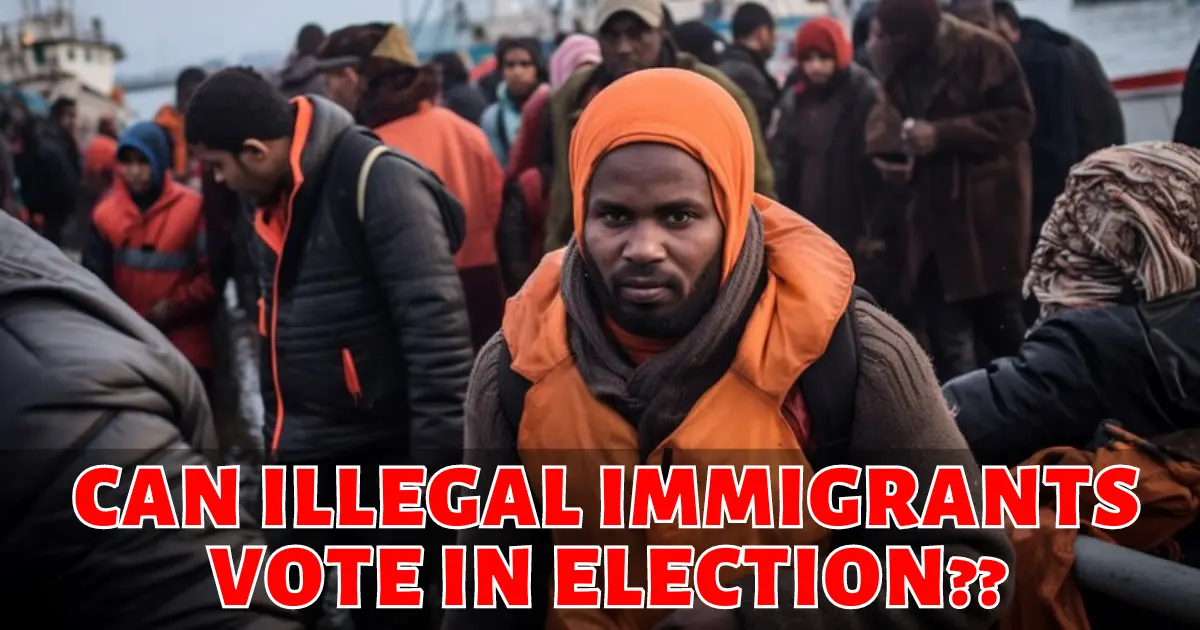Can Illegal Immigrants Vote – In the midst of discussions surrounding voting rights and election integrity, the question of whether illegal immigrants are eligible to vote has become a contentious issue. Illegal immigrants eligible for voting and can illegal immigrants vote are key phrases that spark debates and legal considerations around this topic.
.Federal Laws and Regulations (Can Illegal Immigrants Vote)
The cornerstone of the legal framework regarding voting rights for noncitizens in the United States lies in federal laws that clearly prohibit noncitizens from participating in federal elections. Federal law explicitly bans noncitizens from voting in crucial political contests, such as races for president, vice president, Senate, or House of Representatives. The legislation adopted in 1996 outlines severe penalties for noncitizens who engage in voting activities, including fines, imprisonment for up to a year, or deportation.
Historically, the landscape of noncitizen voting rights has evolved over time. In the early 20th century, approximately 22 states and federal territories permitted noncitizens to vote in state elections.
.However, with the rise of anti-immigrant sentiments in the 1920s, the practice was phased out. Presently, only a handful of jurisdictions in states like California, Illinois, and Maryland, notably cities such as Chicago and San Francisco, allow certain forms of noncitizen voting. Conversely, states like Ohio and Louisiana have implemented constitutional bans on noncitizen voting in recent years.
Challenges and Controversies
As voting regulations continue to be refined and updated across different states, various challenges and controversies arise. The requirement for voters to provide identification before casting their votes is a common practice in the majority of states.
.Moreover, some states are exploring mechanisms to mandate proof of citizenship for voters or initiate updates to voter registries to remove any noncitizens. However, proponents of voting rights argue that these requirements can pose burdensome challenges since many Americans do not routinely carry essential documents like birth certificates or passports.
A significant legal precedent was set in 2013 when the Supreme Court, by a 7-2 majority vote, invalidated an Arizona law that compelled prospective voters to furnish proof of citizenship for national election registration. The Court deemed that the federal voter registration form’s sole requirement of a sworn declaration of citizenship was sufficient and could not be superseded by state-specific demands. This decision underscored the importance of harmonizing federal and state laws regarding voter eligibility.
.In the aftermath of the 2020 elections, the legislative landscape in Arizona witnessed amendments that necessitated proof of citizenship for state election participants and mandated the verification of registered voters who had yet to provide such documentation.
The U.S. District Judge Susan Bolton’s recent rulings validated some of these measures, emphasizing the state’s interest in safeguarding voting processes from noncitizen interference and fostering public confidence in electoral systems.
.Conclusion
The discourse surrounding illegal immigrants’ voting rights remains a complex and nuanced issue, deeply entrenched in legal frameworks, historical contexts, and evolving legislative trends. The interplay between federal mandates, state regulations, and judicial interpretations underscores the intricate web of factors that shape the eligibility criteria for voter participation.
As the debate continues to unfold, the need for a balanced approach that upholds electoral integrity while ensuring inclusivity and accessibility in the voting process remains paramount. Don’t hesitate to share your thoughts about noncitizen voting rights and the implications on the electoral landscape!
.Discover more from Vhindinews
Subscribe to get the latest posts sent to your email.



